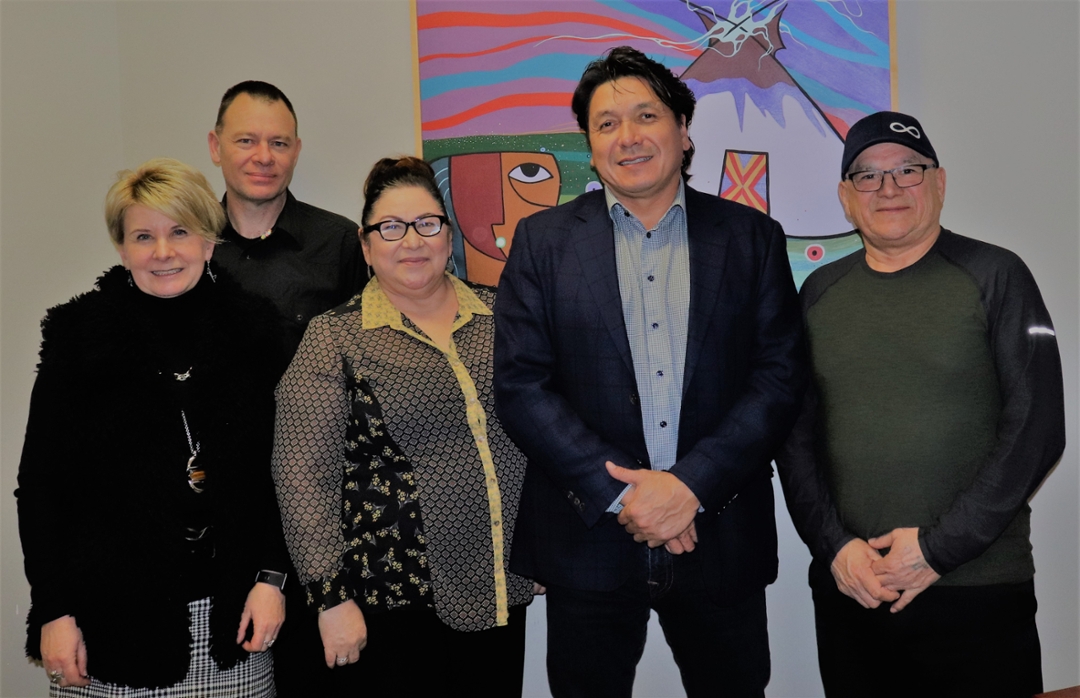
USask awarded $5 million to lead new CIHR Indigenous health research networks to address health disparities
SASKATOON—University of Saskatchewan (USask) researchers have been awarded $5 million from the Canadian Institutes of Health Research (CIHR) as part of a major new national initiative that aims to create a network of Indigenous research centres driven by and grounded in Indigenous communities.
By USask Research Profile and ImpactThe new $100.8-million, 16-year national program—Network Environments for Indigenous Health Research (NEIHR)—represents the largest-ever single investment in Indigenous health research in Canadian history. It is led by USask faculty member Dr. Carrie Bourassa, scientific director of the CIHR Institute of Indigenous Peoples’ Health based at USask, and involves the other 12 CIHR national research institutes as partners.
“Through these nine health research networks across Canada, researchers, Elders, and communities will work together to conduct vitally important health research based on the priorities and values of Indigenous peoples,” said USask Vice-President of Research Karen Chad. “This Indigenous-led, community-based approach will ensure better health outcomes for Indigenous peoples and foster the next generation of Indigenous health researchers. This is reconciliation at work.”
The national co-ordinating centre will be based at USask. It will work collaboratively with the NEIHR centres in British Columbia, Alberta, Saskatchewan, Manitoba, Ontario, Quebec, the Maritimes, and Canada’s circumpolar region to advance national and international Indigenous health research partnerships, establish an annual international Indigenous health research conference, and help evaluate the effectiveness of the new research networks.
Dr. Caroline Tait, a USask medical anthropologist and member of the Métis Nation-Saskatchewan (MN-S), has been awarded $1.5 million from CIHR to lead the national centre that will co-ordinate health research and training with the leads of the eight other regional Indigenous health research networks.
As well, with $3.5-million from CIHR over five years and in-kind support from the Federation of Saskatchewan Indian Nations (FSIN) and MN-S, Tait will lead the Saskatchewan NEIHR network to foster health research within Indigenous communities, working in partnership with the FSIN, MN-S, the Whitecap Dakota First Nation, and a team of more than 60 researchers and community partners.
“The majority of our provincial network members are First Nations and Métis peoples who are best placed to lead health research, training and knowledge mobilization for our communities,” said Tait.
“These networks will help improve the health of Indigenous peoples by removing the barriers communities face in conducting their own health research, and by matching community needs with researcher interests and expertise.”
Two intertwined Saskatchewan networks—one for First Nations communities and one for Métis communities—will be established with funding from post-secondary institutions: $400,000 from USask, $75,000 from University of Regina (U of R), and $25,000 from First Nations University of Canada (FNUniv).
Over five years, these two networks will hire 12 people, award over $300,000 in community project grants, and support more than 50 Indigenous students.
Research assistants hired from Indigenous communities will collect data in communities across the province, community research facilitators will connect communities to relevant research opportunities, and Elders and Knowledge Holders will provide cultural guidance on relationship building, protocol, research, and community and land-based learning. The networks will also educate researchers in best practices.
“This project will provide an opportunity to collect and protect Métis-specific health data to inform Métis health and well-being priorities which will then determine areas of health care program design and service delivery to improve the overall wellness of our citizens, based on our identity, culture and values,” said Marg Friesen, MN-S health minister.
The Saskatchewan networks will work with researchers at USask, U of R, and FNUniv, and with partners including the Office of the Treaty Commissioner, Gabriel Dumont Institute, Saskatchewan Indian Institute of Technologies, Aboriginal Friendship Centres of Saskatchewan, Northern Inter-Tribal Health Authority, and Saskatchewan Polytechnic.
“Our goal is to ensure researchers and communities have the tools they need to work together effectively, guided by the First Nations’ OCAP® (Ownership, Control, Access and Possession) principles, and Métis health research and data governance principles,” said Tait.
-30-
For more information, contact:
Victoria Dinh
Communications and Media Relations Co-ordinator
University of Saskatchewan
306-966-5487
victoria.dinh@usask.ca
Article re-posted on .
View original article.

